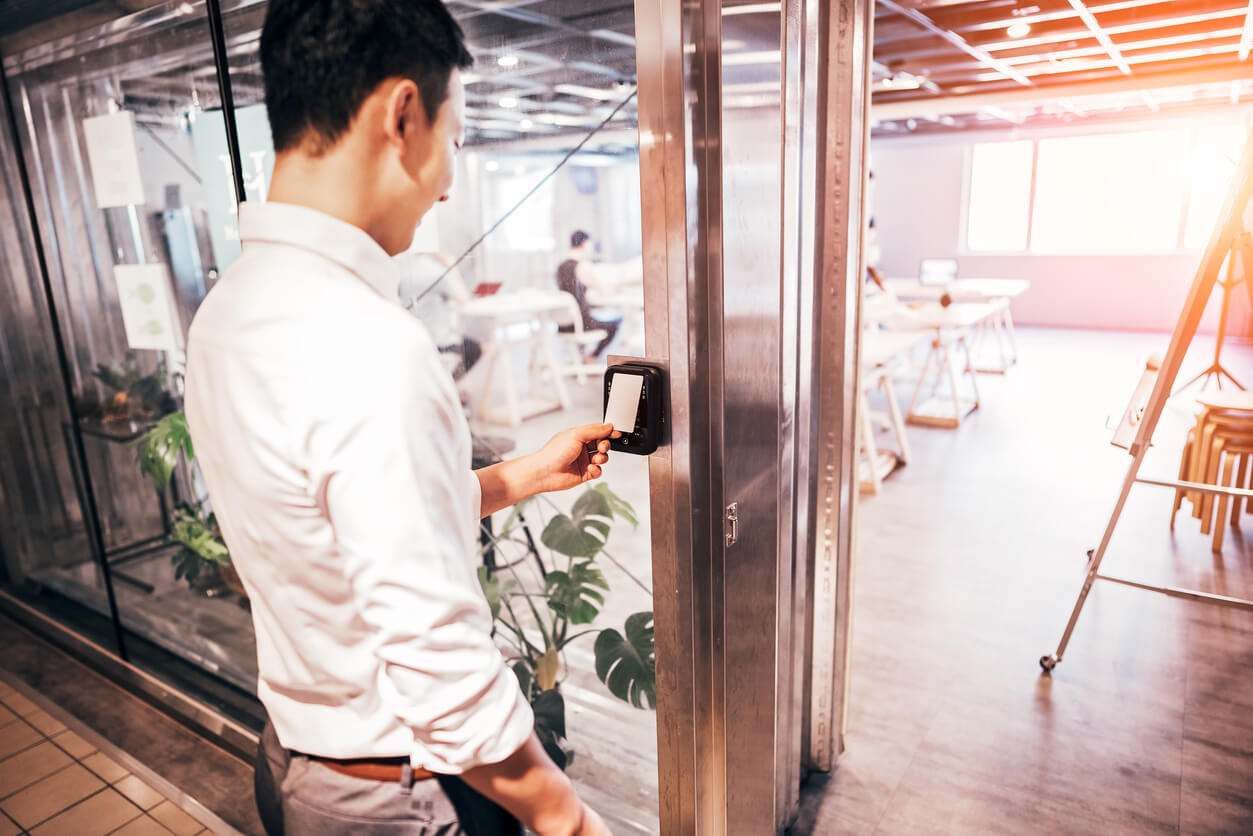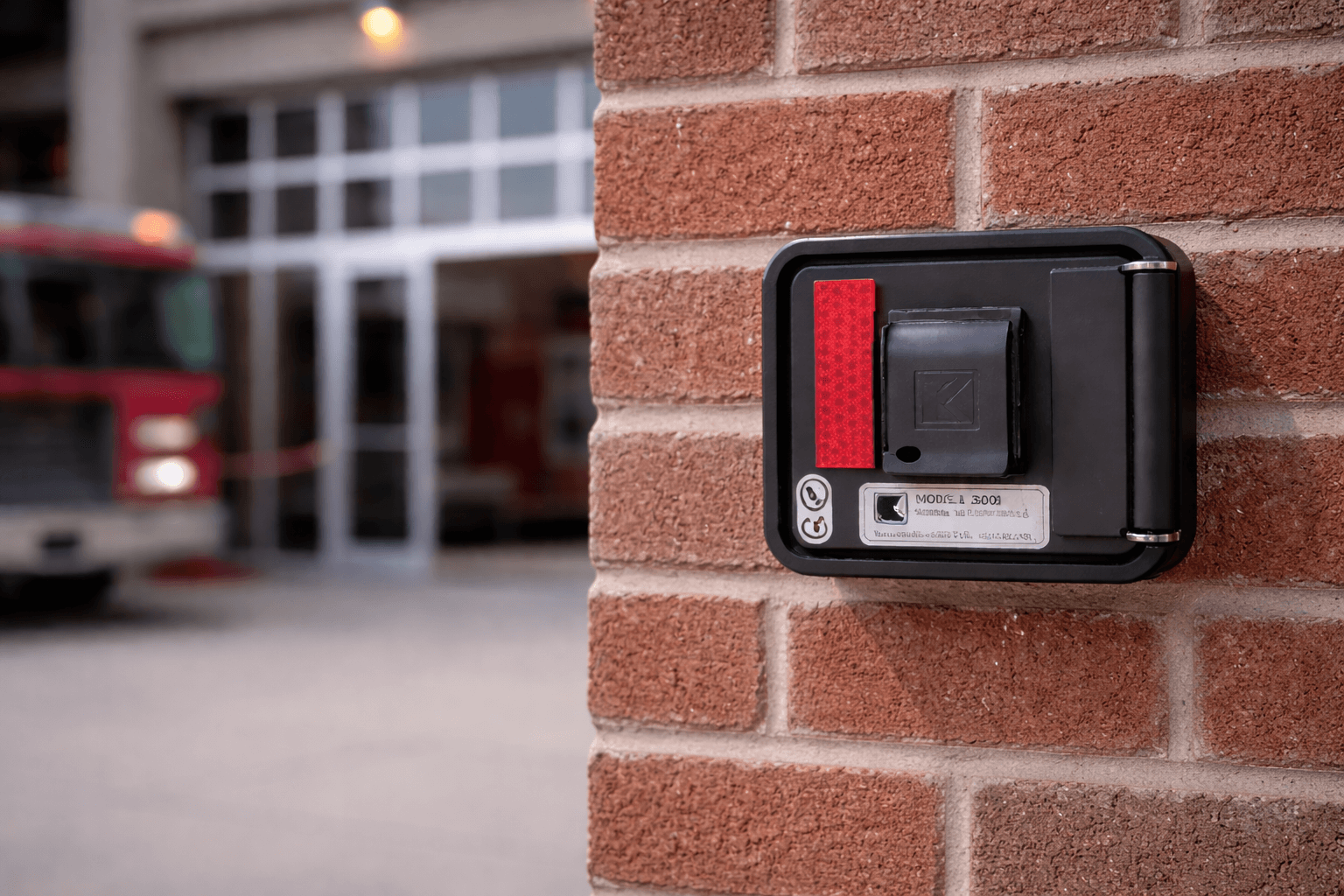Ensuring building security is paramount for businesses. A secure building safeguards your personnel, assets, and operations. Implementing an access control system is the key to achieving optimal safety and protection.
Access control systems enable building owners to effectively manage and control access to their premises. However, their capabilities go beyond mere entry restrictions. This advanced security technology has evolved to provide businesses with invaluable insights into building usage, occupancy patterns, and more.
Advanced access control systems can be customized to suit the specific requirements of a business and seamlessly integrate with other intelligent building components, including a fire alarm system.
Before delving into the advanced features, let's explore the significance of access control systems.
What is an Access Control System?
An access control system is an electronic network providing automated security throughout a building or campus of buildings.
Gate access control systems can be installed around the perimeter of a building to regulate entry points. Door access control systems are installed to make every entry a security checkpoint, ensuring that individuals have proper clearance to access specific areas.
Electronic access control systems can effectively minimize or even eliminate the requirement for on-site security personnel within a building. By leveraging cloud-based access control systems, remote security control becomes seamless.
Why are Access Control Systems Important?
Security in a physical building is a fundamental component of a safe workplace. Access control increases security across the organization by streamlining visitor management, compliance protocols, and employee access. Here are three benefits to businesses:
Increase Physical Security
An access control system regulates physical control methods. The system controls who can access specific areas of a facility and at what times. It logs all controlled entrances and exits.
Strengthen Data Security
On-site servers, computers, and hard drives are repositories of a business’s proprietary data. In many cases, these will also include confidential employee and customer information. Access control systems restrict access to the rooms containing this hardware, increasing cybersecurity and data protection.
Ensure Regulatory Compliance
Access control systems are increasingly relied upon to help organizations meet their regulatory compliance obligations. By creating a comprehensive audit trail of who has accessed which areas and when, access control systems can give auditors and investigators the evidence needed to demonstrate ongoing compliance efforts.
Many organizations have implemented access control systems as part of their compliance initiatives, as they provide an additional layer of oversight and control. These systems create an immutable record of who has been granted access to particular areas, ensuring that only authorized personnel are able to gain entry. Any attempts by unauthorized individuals to access restricted areas can also be flagged, helping organizations stay one step ahead of potential security threats.
9 Powerful Access Control System Features
A wide range of access control systems are available, offering various options to suit your needs. From conventional locks and card readers to sophisticated machine learning systems, these security solutions provide comprehensive data tracking and remote control capabilities.
Here are some features to consider when implementing a new access control system.
1. Cloud-Based Management
Administrators can effortlessly control and manage a cloud-based access control system from anywhere. By leveraging cloud system management, they gain access to real-time alerts, reporting, and remote software updates. This ensures seamless operation and enhances overall system efficiency.
2. Universal Controller
Due to various physical access control methods, such as locks, elevators, barriers, and turnstiles, and identification methods like RFID and biometric readers, a universal controller is a great way to monitor and control access from a managerial level.
3. Convenient Identification Methods
Incorporating multiple identification methods in physical access control systems enhances security and convenience. Authorized visitors can gain access using RFID cards, key fobs, fingerprint scanning, or number combinations. This multi-layered approach ensures a higher level of protection while providing ease of use
4. Multiple System Integrations
Integrating different business security systems can be a great way to create a more holistic security infrastructure. Access control systems, in particular, can provide powerful benefits when combined with other security systems such as video surveillance, visitor management, fire alarm systems, and elevators.
The integration of access control and video surveillance is often used together for efficient monitoring of areas within a facility. Access control solutions provide an extra layer of insight by tracking user access and providing detailed audit trails to be used in conjunction with video surveillance footage for investigative purposes.
5. Customizable Controls
Depending on your organization’s needs, you can design an access system that meets security and operational requirements. For example, smaller organizations may prefer a token-based solution where employees use physical tokens such as cards or key fobs for entry into secure areas.
For larger organizations, more advanced technology, such as biometric or facial recognition systems, can be employed for additional security. These systems are more expensive but offer greater levels of security, granting entry to authorized personnel only.
6. Real-Time Video Feeds
Video feeds enhance the security of an access control system. A video feed solution provides visibility into specific areas, like secure storage, server rooms, or front and back doors. This enables a live view of any suspicious activity that might occur during entry/exit, allowing for quick response if needed. This extra level of monitoring allows authorized personnel to quickly identify potential intrusions or rule out false alarms in real-time.
7. Reporting Capabilities
Customizable reports are a vital feature of access control systems. Administrators can receive reports on details like checkpoint history, invalid access attempts, door opens, and historical on-site tracking.
8. Regular Backups
Regularly scheduled backups are fundamental for data security, system settings and configuration, and reporting. Backups can be performed remotely and on-site, although cloud-based options provide more frequent backup capabilities.
9. Artificial Intelligence (AI)
Artificial intelligence (AI) increases the accuracy and security of an access control system. AI and machine learning algorithms can quickly synthesize information and analyze data from all access control sources, generating thorough and timely reports on building patterns, use cases, and even recommendations for improvement.
Choosing the Right Access Control System for Business Security
Access control systems are a crucial component in the security framework of any organization. It serves as the frontline defense mechanism, ensuring that only authorized individuals gain access to specific areas or resources.
When choosing an access control system, consider features such as ease of use, system integration, identification methods, real-time monitoring, and reporting capabilities. These features will play a vital role in shaping the overall functionality and effectiveness of your system.
Remember, the goal is not just about restricting access; it's about creating a secure, efficient environment that supports your business operations while safeguarding your assets. So, take the time to consider these features when selecting an access control system to ensure you get a solution that fits your unique security needs perfectly.







